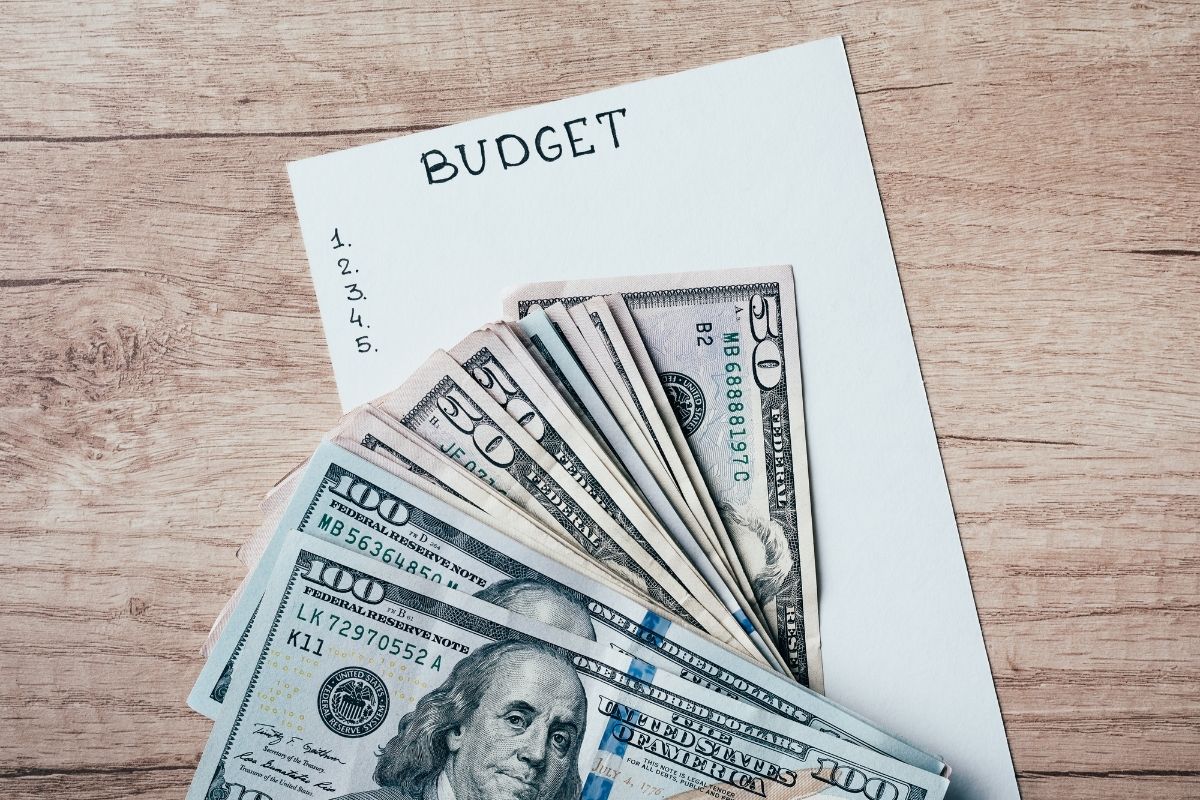Are you looking to use a new budgeting strategy but don’t know where to start? Perhaps someone has suggested a new budgeting strategy to you and you want to know more about it?

Or maybe you just want to learn more about budgeting strategies? Whatever your reason might be, we have the answer for you!
We know how tricky budgeting strategies can be. There are so many different ones out there, and they aren’t always straightforward.
Often they have complex terms that you need a finance degree to understand, leaving many of us in the dark.
Well, no more! Today we are here with some effective budgeting strategies that are easy to understand and use. Just keep reading to find out more!
What Is A Budgeting Strategy?
A budget strategy is a formal process used by people to manage money. People who use budget strategies often do so to avoid spending more than they earn.
Some people use budgeting strategies to save money for a goal like buying a car or retiring.
Other people use budgeting strategies as part of their jobs to ensure their departments and organizations can pay for all their expenses and possibly invest in future opportunities.
Effective Budgeting Strategies
You can use these 12 budgeting strategies to get started on your path towards financial freedom.
Subtraction Budgeting
This is an easy form of budgeting. You add up all your monthly bills and then subtract that total. Your leftovers are saved for future spending or entertainment.
Cash Budgeting
Cash Budgeting is an effective method of keeping track of your finances. You must be careful not to overspend or your money will run out.
Envelope budgeting is a useful tool for those who struggle with visualizing money. Putting your paycheck into a sealed envelope prevents you from spending it on other things.
Proportional Budgeting
With this method, you should spend a certain amount of money on needs (e.g., rent or mortgage) and save a certain amount of money for future expenses. Your spending should be in proportion to your income.
There are many variations of this such as the 70, 20, 10, 60, 20, 20, and others. You can look out for these online and follow their patterns, or adapt them to better suit your budget.
Two Bank Budgeting
Using the two bank budgeting techniques, you should first pay yourself before paying any bills. You may then use the leftover funds to save for future purchases.
Automatic Budgeting
This is an easy way to manage your money. You set up automatic bill pay and transfers to ensure you pay your bills on time and meet your goals. This way, the money isn’t in your account for you to spend!
Online/App Budgeting
There are many different types of budgets available online today. Some are free while others require payment. You should consider using an app or website that helps you set up a personal budget that works for you.
50/30/20 Rule
With this method, you spend about half of what you earn on necessities like rent and utility bills, then you spend about 30 percent on things like eating out and going out to movies, and finally, you save up 20 percent of your earnings for retirement or debts.
This is a very simple yet effective method of budgeting.
Multi-Accounting Budgeting
These systems are a digital version of the traditional cash envelope budgeting strategy used by many people. This method allows users to open multiple bank accounts, with different amounts of money allocated to each account.
Users can transfer funds automatically from one account to another, and they can also set up automatic payments for bills.
Zero-Balance Budgeting Method
This is a common financial strategy used by many people.
This method requires individuals to make sure that they have enough money saved up to cover their monthly expenses by creating a list of all expenses and setting aside income for them.
Savings And Emergency Budgets
These work well if you’re trying to save money. You should put a certain percentage of your paycheck into a savings account, and another portion into an emergency fund.
This will help you stay out of debt and be prepared for emergencies.
Prepaid Debit Cards
These are effective ways to control spending. They allow people to carry less cash and still be able to pay their bills.
A Priority Budget
This involves making a list of all your spending priorities and arranging them in the order that’s most important to you. Then, you can determine how many dollars you want to spend on each category.
Creating A Budget Plan

When it comes to creating a budget plan, there are a few things you should consider. We have outlined them for you below, so just keep reading!
You should always track your spending. You should also regularly review your budget to ensure you are meeting your short- and long-term goals. You should also adjust your budget if necessary.
Set up a budget using a spreadsheet program. Spreadsheets let you keep track of expenses and balances so that you can see where you stand financially. You can also use spreadsheets as a tool to plan for the future.
Setting up a budget is an essential part of getting organized. Budgeting is one of the best ways to maintain balance and focus when it comes to managing your finances.
It doesn’t have to be difficult, but having a good budget is more than just cutting back on frivolous spending.
When you start budgeting, you need to know exactly how much money you have coming in each month. That means calculating your income and deductions.
To calculate your net worth and net income, add up everything you own: assets minus liabilities. And don’t forget to subtract any loan interest you owe.
After calculating your net income, you’ll need to decide how much you can afford to allocate toward regular living expenses such as food, utilities, and housing, plus taxes and other fixed obligations. These are called nonessentials.
From there you’ll want to allocate the rest of your money towards saving or investing, paying off debt, and leaving extra money for unexpected expenses.
To estimate the amount of money you’ll need every month, take the total expenses listed in your budget and divide them among the categories to identify how much money you need to earn each month.
To do this, first, find the average number of days you worked last year or estimated that you’d work this year.
Next, factor in an hourly rate based on your current salary and assume that you’ll work 40 hours per week during the entire year.
Now, multiply your hourly wage by 400 to figure out how much money you need in total to meet both your living and savings needs.
The resulting figure represents the minimum amount of money you must earn to reach your goal. If you’re looking to increase your earnings, you may consider volunteering or working a second job.
If you’ve already figured out what you’re going to save, then you’re ready to set a specific monthly target for your savings goals.
As with the previous calculation, once again use your daily expenses to help determine how much you need to save each month.
Subtract from that figure your income before taxes and other deductions. This will give you a rough idea of how much you should save.
Once you’ve settled on a monthly amount, you can begin to look at different types of investments and retirement accounts.
Final Thoughts
Think about which type of budget strategy works for your lifestyle before deciding which method is right for you.
Once you decide which method best suits your needs, create a budget according to this method and stick to it. Good luck with budgeting!
Financial Disclaimer
This post contains sponsored advertising content. This content is for informational purposes only and not intended to be investing advice.
The investing information provided on this page is for educational purposes only. compundingstacks.com does not offer advisory or brokerage services, nor does it recommend or advise investors to buy or sell particular stocks or securities.
The owner(s) of this blog is compensated to provide opinion on products, services, websites, and other topics. The owner(s) may be compensated if you click on a provided link and purchase or sign up for a service. Any product claim or advice about a product or service should be verified with the manufacturer, provider, or party in question. Copyright Compounding Stacks © 2022
- Is Coinbase Safe For Beginners? - March 25, 2022
- Are Penny Stocks Good For Beginners? - March 25, 2022
- Why You Shouldn’t Save Your Money In A Bank? - March 25, 2022

